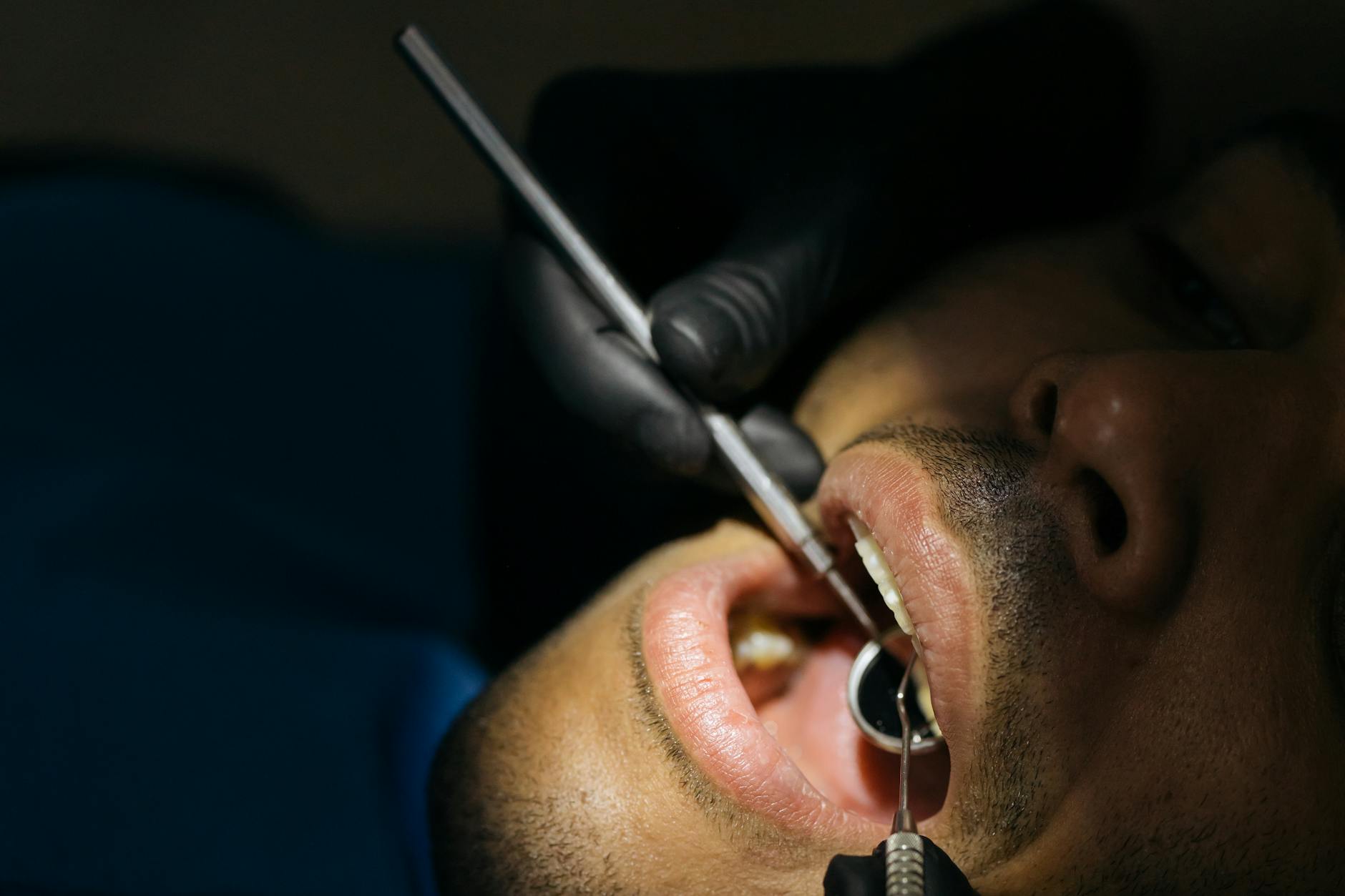Introduction
Maintaining good oral hygiene becomes increasingly difficult as people age. With advancing age, the body undergoes physiological changes that affect the structure and functions of various systems, including the oral cavity. Aging adults often experience reduced saliva production, weakening of the jaw bone, declining manual dexterity, and other health conditions that complicate oral care. Additionally, older adults are more likely to take multiple medications, many of which have side effects that directly affect oral health. As a result, issues such as dry mouth, tooth loss, gum disease, and the impacts of medications become more common and significantly affect their quality of life, nutrition, and overall well-being.
Challenges Faced By Older Adults in Oral Health and Their Causes
- Dry Mouth
Dry mouth is more than just an uncomfortable feeling-it significantly disrupts the mouth’s natural ability to protect itself. Saliva serves as a natural defense system that cleans the mouth, neutralizes acids and prevents harmful bacteria from thriving. When saliva production decreases, these protections are lost.
Causes
Medications: A majority of older adults take medications for chronic conditions which may have effects such as reduced saliva flow.
Medical conditions: Diseases such as diabetes, hypertension, HIV/AIDS, and autoimmune disorders like Sjogren’s syndrome directly affect salivary glands.
Cancer Therapy: Radiation treatment to the head and neck area and certain chemotherapy drugs damages the salivary glands.
Impacts
Increased Tooth Decay: Without saliva, food particles and acids stay on the teeth longer, leading to rapid decay.
Gum Disease: Saliva helps to maintain healthy gums; its absence makes the mouth vulnerable to infections and inflammation.
Bad Breath: The accumulation of bacteria due to lack of moisture leads to persistent halitosis.
Difficulty in Eating and speaking: Dryness makes chewing and swallowing painful, which may result in reduced food intake and poor nutrition. Speaking may also be impaired.
Mouth Sores and Infections: A dry environment makes oral tissues prone to ulcers, fungal infections, and burning sensations.
- Tooth Loss
Losing teeth is often mistakenly accepted as a normal part of aging. However, with proper care, it is largely preventable. Tooth loss severely impacts a person’s ability to eat, speak, and smile confidently.
Causes
Untreated gum disease: Periodontal disease, which is prevalent among the elderly, damages the tissues and bones supporting the teeth.
Poor Oral Hygiene Habits: Over time, neglecting to brush and floss properly leads to plaque buildup and tooth decay.
Osteoporosis: This condition weakens the bones, including the jawbone, making it easier for teeth to become loose or fall out.
Diet: Diets high in sugar and low in calcium and vitamin D contribute to tooth decay and loss of bones. Lack of access to regular dental visits, financial limitations, logistical difficulties, and lack of awareness prevents many older adults from seeking timely dental care.
Impacts
Impaired Nutrition: Tooth loss makes it difficult to chew fibrous and hard foods like fruits, vegetables, and nuts, leading to unbalanced diets.
Speech Impediments: Missing teeth can affect pronunciation and clarity of speech, making communication challenging.
Facial Structure Alterations: Loss of teeth leads to sagging cheeks and jaw shrinkage, affecting physical appearance and self-esteem.
Emotional Distress: Many older adults feel embarrassed by missing teeth and may withdraw from social activities, leading to self isolation and may cause depression.
- Impacts of Medications on Oral Health
Medications play a critical role in managing chronic diseases, but they also come with oral health side effects. Since older adults typically take multiple drugs simultaneously, their risk is compounded.
Common Side Effects and Issues
Gingival Overgrowth: Medications such as phenytoin for epilepsy, calcium channel blockers for hypertension, and cyclosporine which is an immunosuppressant, can cause gum tissue to overgrow and cover teeth, making oral hygiene difficult.
Mucosal irritation: Some drugs irritate the lining of the mouth, leading to painful sores or sensitivity.
Taste Alteration: Certain medications can cause metallic or bitter tastes, or reduce taste sensation, leading to decreased appetite.
Excessive Bleeding or Poor Healing: Blood thinners can increase bleeding during dental procedures and delay healing.
Impacts
Compromised dental treatment: Oral surgeries or procedures become riskier due to increased bleeding or healing.
Difficulty in Maintaining Hygiene: Overgrown or sensitive gums and dry mouth hinder brushing and flossing, leading to accumulation of plaque and infections.
Decreased Quality of Life: A combination of discomfort, altered taste, and poor appearance can significantly reduce the daily joy and comfort of eating, speaking, and socializing.
Solutions to the Challenges and How the Community Can Help
Addressing Dry Mouth
Use of Artificial Saliva and Moisturizers: Over the counter products like saliva substitutes, oral sprays, and special toothpaste can relieve symptoms.
Hydration Habits: Older adults should be encouraged to sip water regularly and avoid caffeine and alcohol to prevent or relieve dry mouth.
Diet Adjustments: Avoiding dry, salty, or acidic foods and eating moist, soft foods can reduce discomfort.
Medical review: Regular check-ups with physicians and dentists can help adjust medication types or dosage to reduce side effects.
Community Involvement
Organizing health talks on medication side effects and oral care.
Providing free or subsidized oral care products for older adults.
Preventing and Managing Tooth Loss
Regular Dental Visits: Communities and healthcare providers can facilitate transportation and affordable access to dental check-ups.
Oral hygiene Education: Teaching older adults and caregivers proper brushing and flossing techniques using adaptive tools like electric toothbrush and floss holders.
Access to Prosthetic Solutions: Programs can help seniors get dentures, bridges, or implants at low cost or through government insurance.
Community Involvement
Setting up local dental camps and check-ups clinics in retirement homes or community centers.
Sponsoring oral health programs through NGOs, religious institutions, or health partnership.
Mitigating Medication Effects
Interdisciplinary Coordination: Encouraging communication between doctors, dentists, and pharmacists to find alternatives with fewer oral side effects.
Patient Awareness: Older adults should be taught to inform their dentists about all medications they are taking so as to be prescribed with ones with less side effects.
Customized Oral Care Plans: Tailored hygiene routines can be created for seniors with chronic illness or dexterity issues.
Community Involvement
Training caregivers and family members in senior oral care practices.
Providing information through posters, brochures, and community meetings.
Impacts on Overall Health and Well-being
Nutritional Deficiency: When chewing is painful or difficult, older adults often switch to soft, processed foods that lack essential nutrients. Over time, this can lead to vitamin and mineral deficiencies, weakening the immune system and worsening other chronic conditions.
Social Isolation and Depression: Oral health issues can affect how older adults look, smell, and talk. Embarrassment due to bad breath or missing teeth often leads to withdrawal from social gatherings, impacting mental health.
Susceptibility to Diseases: Poor oral health is linked to increased risks of lifestyle diseases and respiratory infections which may lead to complications. Bacteria from the mouth can enter the blood stream and spread the infection.
Conclusion
Oral health is an essential component of overall health and well-being, especially for older adults. Challenges such as dry mouth, tooth loss, and the adverse effects of medications can significantly diminish quality of life if not properly addressed. Through a combination of personal hygiene practices, medical support, dental care access, and community involvement, these challenges can be effectively managed. Investing in oral health for seniors is not just a medical necessity but it is also a matter of dignity, nutrition, communication, and social inclusion. Every stakeholder, from health professionals to family members and policy makers, has a role to play in ensuring that our aging population maintains healthy and confident smiles.




